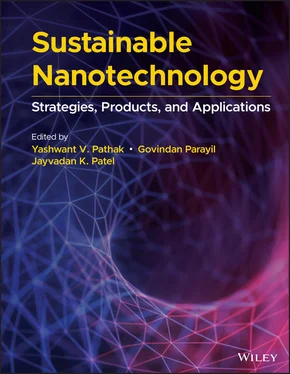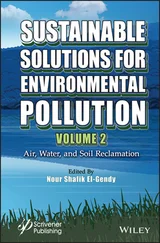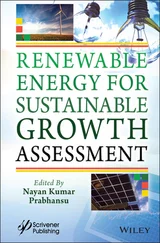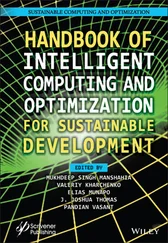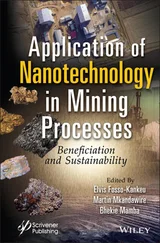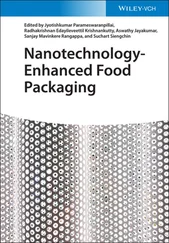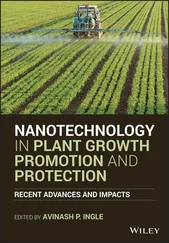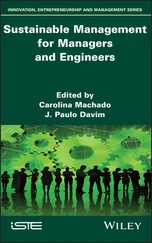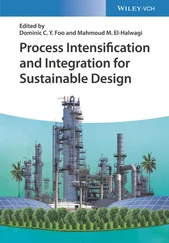Sustainable Nanotechnology
Здесь есть возможность читать онлайн «Sustainable Nanotechnology» — ознакомительный отрывок электронной книги совершенно бесплатно, а после прочтения отрывка купить полную версию. В некоторых случаях можно слушать аудио, скачать через торрент в формате fb2 и присутствует краткое содержание. Жанр: unrecognised, на английском языке. Описание произведения, (предисловие) а так же отзывы посетителей доступны на портале библиотеки ЛибКат.
- Название:Sustainable Nanotechnology
- Автор:
- Жанр:
- Год:неизвестен
- ISBN:нет данных
- Рейтинг книги:3 / 5. Голосов: 1
-
Избранное:Добавить в избранное
- Отзывы:
-
Ваша оценка:
- 60
- 1
- 2
- 3
- 4
- 5
Sustainable Nanotechnology: краткое содержание, описание и аннотация
Предлагаем к чтению аннотацию, описание, краткое содержание или предисловие (зависит от того, что написал сам автор книги «Sustainable Nanotechnology»). Если вы не нашли необходимую информацию о книге — напишите в комментариях, мы постараемся отыскать её.
A robust examination of the use of nanotechnology in the manufacture of sustainable products Sustainable Nanotechnology: Strategies, Products, and Applications
Sustainable Nanotechnology: Strategies, Products, and Applications
Sustainable Nanotechnology — читать онлайн ознакомительный отрывок
Ниже представлен текст книги, разбитый по страницам. Система сохранения места последней прочитанной страницы, позволяет с удобством читать онлайн бесплатно книгу «Sustainable Nanotechnology», без необходимости каждый раз заново искать на чём Вы остановились. Поставьте закладку, и сможете в любой момент перейти на страницу, на которой закончили чтение.
Интервал:
Закладка:
Ridita Khan University of South Florida (USF) College of Engineering USF Tampa FL USA
Lalit Kumar Department of Pharmaceutics Manipal College of Pharmaceutical Sciences Manipal Academy of Higher Education Manipal Karnataka India
Pradeep Kumar Wits Advanced Drug Delivery Platform Research Unit Department of Pharmacy and Pharmacology School of Therapeutic Sciences Faculty of Health Sciences University of the Witwatersrand Johannesburg South Africa
Samarth Kumar Formulation‐R & D Sun Pharmaceutical Industries Ltd. Vadodara Gujarat India
Saliha B. Kurt Faculty of Science and Arts Department of Chemistry Terzioglu Campus Canakkale Turkey
Giulia Liberatori Department of Physical Earth and Environmental Sciences University of Siena and INSTM Local Unit Siena Italy
Shirleen Miriam Marques Department of Pharmaceutics Manipal College of Pharmaceutical Sciences Manipal Academy of Higher Education Manipal Karnataka India
Layla Muraisi Taneja College of Pharmacy University of South Florida Tampa FL USA
Debjani Nath Department of Zoology University of Kalyani Kalyani Nadia West Bengal India
Prachi Pandey Babaria Institute of Pharmacy BITS Edu campus Vadodara Gujarat India
Govindan ParayilPatel College of Global Sustainability University of South Florida Tampa Florida USA
Komal Parmar ROFEL, Shri G.M. Bilakhia College of Pharmacy Vapi Gujarat India
Anand Patel Department of Chemistry Uka Tarsadia University Bardoli Gujarat India
Bhavin Patel Department of Chemistry Uka Tarsadia University Bardoli Gujarat India
Jayvadan K. Patel Faculty of Pharmacy Nootan Pharmacy College Sankalchand Patel University Visnagar Gujarat India
Manish Patel L M College of Pharmacy Gujarat Technological University Ahmedabad Gujarat India
Nishith Patel Arihant School of Pharmacy and Bio‐Research Institute Gandhinagar Gujarat India
Vimal Patel Institute of Pharmacy Nirma University Ahmedabad Gujarat India
Yashwant Pathak Taneja College of Pharmacy University of South Florida Tampa FL USA
Adjunct Professor Faculty of Pharmacy Airlangga University Surabaya Indonesia
Viness Pillay Wits Advanced Drug Delivery Platform Research Unit Department of Pharmacy and Pharmacology School of Therapeutic Sciences Faculty of Health Sciences University of the Witwatersrand Johannesburg South Africa
Carlo Punta Department of Chemistry, Materials, and Chemical Engineering “G. Natta” Politecnico di Milano and INSTM Local Unit Piazza Leonardo da Vinci Milano Italy
Twishi Puri Department of Biology Worcester State University Worcester MAUSA
Kavyashree Puttananjegowda University of South Florida (USF) College of Engineering USF Tampa FL USA
Ananya Rajkumari Department of Pharmaceutical Sciences Dibrugarh University Dibrugarh Assam India
Anugrah Ray Department of Zoology University of Kalyani Kalyani Nadia West Bengal India
Laura Riva Department of Chemistry, Materials, and Chemical Engineering “G. Natta” Politecnico di Milano and INSTM Local Unit Piazza Leonardo da Vinci Milano Italy
Puspendu Roy Department of Zoology University of Kalyani Kalyani Nadia West Bengal India
Mehtap Sahiner Canakkale Applied Science Department of Fashion Design Canakkale Onsekiz Mart University Terzioglu Campus Canakkale Turkey
Nurettin Sahiner Faculty of Science and Arts Department of Chemistry Canakkale Onsekiz Mart University Canakkale Turkey
Department of Chemical and Biomolecular Engineering University of South Florida Tampa FL USA
Department of Ophthalmology Morsani College of Medicine University of South Florida Tampa FL USA
William Serrano‐Garcia University of South Florida (USF) College of Engineering USF Tampa FL USA
Bianca Seufert University of South Florida (USF) College of Engineering USF Tampa FL USA
Jigar Shah Institute of Pharmacy Nirma University Ahmedabad Gujarat India
Pranav Shah Maliba Pharmacy College Uka Tarsadia University Bardoli Gujarat India
Tabassum Siddiqui Department of Biosciences Jamia Millia Islamia Central University New Delhi India
Sylvia Thomas University of South Florida (USF) College of Engineering USF Tampa FL USA
Preface
Nanotechnology, if applied strategically and carefully, can provide sustainable solutions to many global challenges and lead us toward sustainable development. Sustainable innovations derived from nanotechnology applications can help us achieve several of the 17 sustainable development goals (UN‐SDGs), a set of forward‐looking goals for the world to adopt in order to achieve economic, social, and environmental sustainability. The SDGs were formally adopted by the United Nations in 2015, which garnered universal support from all UN member states. The agenda of actions to make the SDGs achievable by 2030 exhorts all nations adopt appropriate policy changes to their respective national development goals and plans (Source: United Nations Development Programme: https://www.undp.org/content/undp/en/home/sustainable‐development‐goals/background/). The major challenges the world is facing now, such as extreme weather, droughts, wildfires, devastating floods, sea‐level rise, loss of biological diversity, recurrence of global pandemics, and increasing poverty and income/wealth inequality within and between nations, if not addressed immediately, will lead to an uncertain future for the present and future generations.
The world is facing challenges on all three dimensions of sustainable development – economic, social, and environmental. More than one billion people are still living in extreme poverty, income, and wealth inequality. The covid‐led shut down of the global economy is felt most acutely in developing nations, and hundreds of millions of people who had escaped poverty over the past two decades are now being pushed back into poverty. At the same time, unsustainable consumption and production patterns over many decades have resulted in huge economic and environmental costs as the externalities associated with these unsustainable practices have been left unresolved. These externalities in the form of carbon dioxide pollution from fossil fuels and billions of tons of plastics and other consumption wastes have ended up in our oceans, landfills, and natural landscapes, to name a few major problems. Life on our planet is under threat from these and other sources of environmental degradation.
Achieving sustainable development will require concerted global actions to deliver on the legitimate aspirations for further economic and social progress, requiring economic growth and employment while strengthening environmental protection. Sustainable development must be inclusive and should take special care of the needs of the poorest and most vulnerable. Strategies need to be ambitious, action oriented, collaborative, and capable of adapting to different levels of development.
That means we need to systemically change consumption and production patterns, which, inter alia , will entail significant price corrections; encourage preservation of natural capital; reduce inequality; and strengthen economic governance.
(Taken from World Economic and Social Survey 2013: Sustainable Development Challenges https://sustainabledevelopment.un.org/content/documents/2843WESS2013.pdf)
Continuation of the current development strategies will not be sufficient to achieve sustainable development. Moreover, relying on “business as usual” scenarios presents clear risks, because evidence is mounting against the status quo such that:
Читать дальшеИнтервал:
Закладка:
Похожие книги на «Sustainable Nanotechnology»
Представляем Вашему вниманию похожие книги на «Sustainable Nanotechnology» списком для выбора. Мы отобрали схожую по названию и смыслу литературу в надежде предоставить читателям больше вариантов отыскать новые, интересные, ещё непрочитанные произведения.
Обсуждение, отзывы о книге «Sustainable Nanotechnology» и просто собственные мнения читателей. Оставьте ваши комментарии, напишите, что Вы думаете о произведении, его смысле или главных героях. Укажите что конкретно понравилось, а что нет, и почему Вы так считаете.
